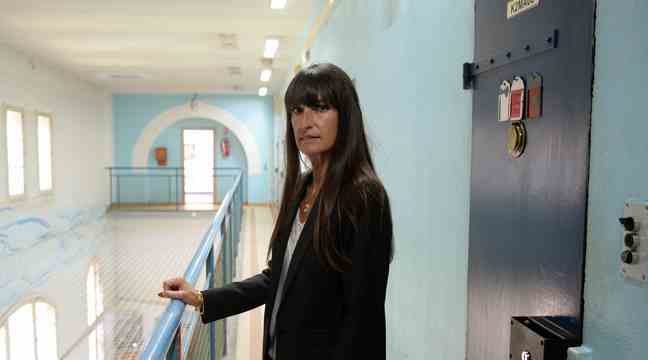The difference is felt as soon as you enter the establishment. A stone’s throw from the train station, the women’s prison in Rennes is not a bunker with huge concrete walls. The hexagon of bricks and stones is of course secure, but it is in no way comparable to the recent prison for men in Rennes-Vezin. “It’s not the same time. Here, we are old-fashioned, we know each other, ”slips a supervisor guiding me inside the enclosure. There are 180 personnel from all bodies working in these walls erected at the end of the 18th century to supervise the approximately 220 prisoners.
Often presented as a model of reintegration, this establishment is unlike any other in France. But like all prisons, it remains secret, it intrigues, it questions, it sometimes frightens. This Wednesday, the day after International Women’s Rights Day, prison director Véronique Sousset intends to “make her known differently” at the bend of a café-justice organized by the association Champs de Justice (read framed).
She took office at the very beginning of April 2020 in a frozen France. After having directed the penitentiary center of Nantes then the central house of Saint-Maur (Indre), the one who was also a criminal lawyer for four years took the reins of the women’s prison in the Breton capital. “We cannot speak of female specificity, but there are female concerns that are not those of men. Beyond the stereotypes, we observe that questions of the body, clothing, self-esteem, but also motherhood and the bond with children are more significant here,” explains Véronique Sousset. It is to help the general public to “better understand” what the prison environment hides that the director will publish the book Jail fragments this Thursday at the Cherche-Midi editions.
“There are no specific crimes against women”
In France, Rennes is the only prison center reserved exclusively for women. It accommodates a majority of long sentences whose average flirts with 15 years of incarceration. Here, the youngest detainee is 17 years old, the oldest celebrated her 78th birthday. “There are no specific crimes against women. The reasons which brought them here are multiple even if there is a predominance of intra-family violence”, testifies the director. For all of them, the objective is the same: “you have to stay up. People have to take control of their pain. Prison is not just letting the years slip away. It is essential to be treated there, to be able to exercise one’s rights as a citizen, to receive training there, to work there and to contribute to compensating the victims. Here, the front door is the same as the exit door”, recalls the director of the establishment.
One of the major differences with male prisoners is the number of visits received by female prisoners. Here, many of them have no contact with their family or friends. “They are often more isolated, it’s true. We don’t see families coming here with bundles of clothes like in Fresnes or Fleury-Mérogis. There is less consistency, less follow-up in the visits,” admits Véronique Sousset. To maintain or re-establish the link, the prison administration has had a telephone installed in each cell and three videophone points, the cost of conversations for which remains the responsibility of the inmates. For those who are the most isolated, volunteer prison visitors come regularly to maintain the link with the outside world.
After two years at the head of the establishment, Véronique Sousset knows that there is “still a lot to do” to put these women back on the path to citizenship and perhaps one day to freedom. Four places are offered in particular in a semi-freedom area where women can go out during the day to work, or at least look for one, and train. They are forced to return to their cell in the evening. “The important thing is to compensate for this cut effect with the outside world, not to desocialize. In some cases of long or very long sentences, freedom may however have lost its taste, scaring women anxious at the idea of leaving the borders of France.

